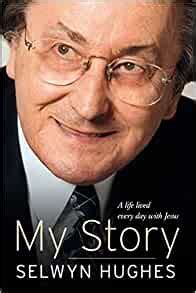A Quote by C. S. Lewis
Now the story of Christ is simply a true myth: a myth working on us the same way as the others, but with this tremendous difference that it really happened: and one must be content to accept it in the same way, remembering that it is God’s myth where the others are men’s myths: i.e., the Pagan stories are God expressing Himself through the minds of poets, using such images as He found there, while Christianity is God expressing Himself through what we call 'real things'.
Related Quotes
Symbols are specific acts or figures, while myths develop and elaborate these symbols into a story which contains characters and several episodes. The myth is thus more inclusive. But both symbol and myth have the same function psychologically; they are man's way of expressing the quintessence of his experience - his way of seeing his life, his self-image and his relations to the world of his fellow men and of nature - in a total figure which at the same moment carries the vital meaning of this experience.
The law of giving and receiving is fundamental, and relates just as much to God as it does to us. As we go through the door of giving ourselves to God in worship we find that God comes through that same door and gives Himself to us. God's insistence that we worship Him is not really a demand at all but an offer-an offer to share Himself with us. When God asks us to worship Him, He is asking us to fulfill the deepest longing in Himself, which is His passionate desire to give Himself to us. It is what Martin Luther called "the joyful exchange."
Dream is personalized myth, myth is depersonalized dream; both myth and dream are symbolic in the same general way of the dynamics of the psyche. But in the dream the forms are quirked by the peculiar troubles of the dreamer, whereas in myth the problem and solutions shown are directly valid for all mankind.
Myth is a tale once believed as truth; believed, it is not myth, but religion. A tale once religiously believed that has come to be called a myth is something of religion corrupted with disbelief. What are beliefs for some societies but myths for others cannot fill spiritual vacancies in the life of those others.
We have come from God, and inevitably the myths woven by us, though they contain error, will also reflect a splintered fragment of the true light, the eternal truth that is with God. Indeed only by myth-making, only by becoming 'sub-creator' and inventing stories, can Man aspire to the state of perfection that he knew before the Fall. Our myths may be misguided, but they steer however shakily towards the true harbour, while materialistic 'progress' leads only to a yawning abyss and the Iron Crown of the power of evil.
The heart of Christianity is a myth which is also a fact. The old myth of the Dying God, without ceasing to be myth, comes down from the heaven of legend and imagination to the earth of history. It happens - at a particular date, in a particular place, followed by definable historical consequences. We pass from a Balder or an Osiris, dying nobody knows when or where, to a historical Person crucified (it is all in order) under Pontius Pilate. By becoming fact it does not cease to be myth: that is the miracle.
Myth is the practical metabolism of our soulish life, the logic of our obsessions and oversights for which we have no language or code. Myth is the "morality" that the ineffable puts upon us, our unaccountable imperatives, our inexplicably selective clarity and obscurity, the mortal one-sidedness of our talents and wits, the passion and apathy that make such a transient passage through our hapless minds; that weave a pattern of fatality others will see before we do. Myth is distinctively human or sublime higher-order instinct, the "reason" in culture that reason knows not of.
I do think that this represents a kind of shift towards myth, a recovery of myth, largely through the popularity of writers like Philip Pullman. Somehow myths have returned as a serious subject. It used to be scorned...really scorned. It was part of a nursery tradition, and it was also rather tainted - but not in an immovable way - by the association with right-wing ideologies after the World Wars.
We must remember that there is a great difference between a myth and a miracle. A myth is the idealization of a fact. A miracle is the counterfeit of a fact. There is the same difference between a myth and a miracle that there is between fiction and falsehood -- between poetry and perjury. Miracles belong to the far past and the far future. The little line of sand, called the present, between the seas, belongs to common sense to the natural.
But myth is something else than an explanation of the world, of history, and of destiny. Myth expresses in terms of the world - that is, of the other world or the second world - the understanding that man has of himself in relation to the foundation and the limit of his existence. Hence to demythologize is to interpret myth, that is, to relate the objective representations of the myth to the self-understanding which is both shown and concealed in it.


































